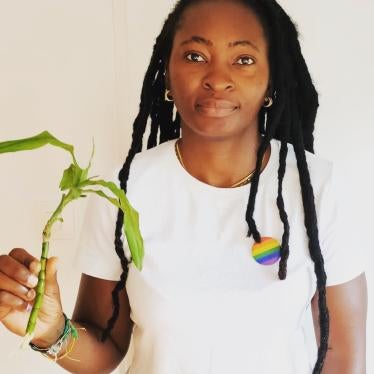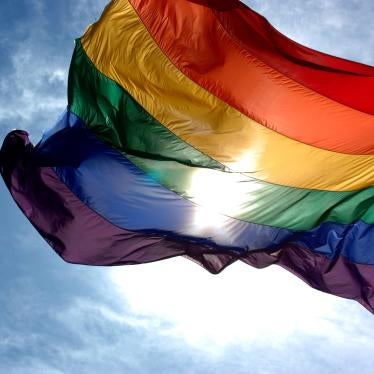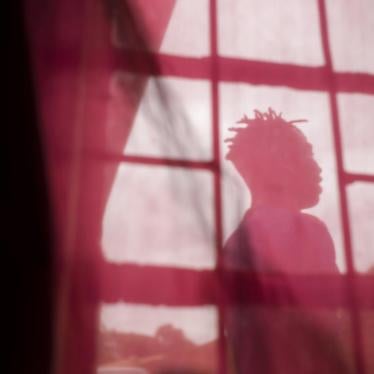The Namibian High Court has declared the common law offences of “sodomy” and “unnatural sexual offences” unconstitutional, marking a major victory for LGBT people.
These colonial-era laws – which were inherited from South Africa after Namibia’s independence – criminalized consensual same-sex conduct between male adults.
“For now, we are celebrating. We are no longer considered criminals by the law,” a Namibian lesbian, gay, bisexual, transgender (LGBT) rights activist told Human Rights Watch.
Friedel Dausab, who brought the case, argued the laws infringed his constitutional rights to equality, dignity, privacy, freedom of expression, and freedom of association, based on his sexual orientation.
The court ruled the criminalization of anal sexual intercourse between consenting adult males in private is prejudicial and not justifiable in a democratic society. It also found singling out homosexual men for different treatment amounts to unfair discrimination; that enforcement of the private moral views of a section of the community – even if in the majority – does not justify restricting another’s freedom and make an activity criminal.
Since the Supreme Court of Namibia’s recognition of certain unions contracted abroad between same sex couples in 2023, there has been a heated debate in Namibia about respect for LGBT people’s human rights. Parliament passed two bills aimed at banning marriage equality and criminalizing any form of support, celebration or promotion of same sex unions. While the bills have yet to be signed into law by President Nangolo Mbumba, they have contributed to a hostile environment for the LGBT community with reports of an increase in verbal attacks, including crackdown on queer organizations by some religious groups.
The High Court’s ruling is an important reminder that legalizing discrimination against a specific group not only violates fundamental human rights but fosters violence and abuses against them. Mbumba should veto the two pending bills to ensure equality and inclusion for all, regardless of their gender or sexual orientation.
The High Court ruling also represents a hopeful step toward decriminalization of same-sex relationships across all of Africa, following rulings from South Africa (1998), Botswana (2019), and Mauritius (2023). Instead of targeting marginalized groups to rally their conservative bases, politicians in the region should heed the spirit of these robust rulings on the continent and promote equality and nondiscrimination for all people.








